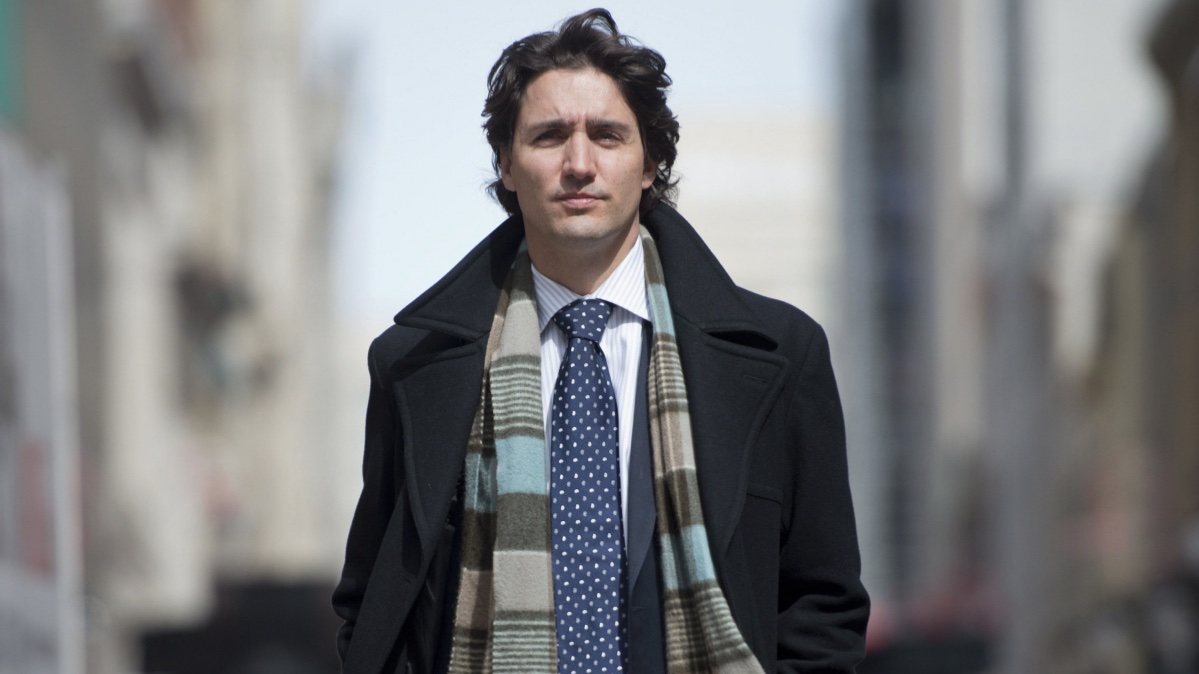Support strong Canadian climate journalism for 2025
While visiting Vancouver, Justin Trudeau joined Sandy Garossino of the National Observer by telephone for an extended interview.
"Leadership should be about reassuring Canadians and bringing them together"
Sandy Garossino: With respect to divisive issues such as the niqab, citizenship revocation, and other concerns that seem to target one racial group in particular, can you expand on the politics of fear that you say the Prime Minister has engaged in?
Justin Trudeau: Leadership, particularly in times of stress, should be about reassuring Canadians and bringing them together. Our capacity to pull together is what’s most extraordinary about this country.
Instead, we have a prime minister who has figured out there is an advantage to be had in ginning up fears about certain minorities, particularly Muslim Canadians. He's engaging in that wholeheartedly, and that is an extremely troubling development.
But it’s an extension of what we’ve been seeing in politics over the past decade, which is a narrow-casting, an approach that [the] strategic politics of division and wedge are very effective to get you elected.
The number of fault lines that exist in a country as diverse as Canada is [a] real cause for concern when you have leadership that chooses to exacerbate those differences, instead of binding people together on our common themes and values.
"The place for people convicted of terrorism is in jail"
SG: Should immigrants be worried that after this election a Conservative government might go further with citizenship revocation, beyond simply invoking the terrorism provisions that they’ve enacted?
JT: The first thing that we need to emphasize is that the place for people convicted of terrorism is in jail.
In a country with the rule of law, we shouldn’t have different consequences for Canadian citizens dependent on where their parents happened to be born. This is a trend line that is very, very, worrisome.
We know that this is something the Conservatives could have acted on any time over the last 10 years, and chose to act on during an election campaign as a way of talking up an issue that’s going to distract from their failed record on the economy.
Harper's looking to talk up the politics of fear and division as a way to muddy the electoral waters enough to be able to squeeze through.
C-51: "measures that directly and immediately increase security"
SG: Bill C-51: you said in the Munk Debate that Mr. Mulcair is playing politics of fear and hyping fear for environmental groups and First Nations amongst others. Yet even Louise Arbour, former justice for the Supreme Court of Canada, has said that Canadians should be afraid and very concerned.
Why do you say it's playing politics of fear to raise what seem to be very well-founded concerns?
JT: When you have a prime minister who’s referred to environmentalists and First Nations groups as terrorist organizations, that is not a healthy situation, and I don’t think that opposition parties should be buying into the flip side of that fear and trying to talk it up either way.
Mr. Harper doesn't think he needs to do anything more to defend our rights and freedoms, and Mr. Mulcair seems to think we don’t need to do anything more to protect our security. We think they’re both wrong and we’re taking a responsible position.
We supported C-51 because there are measures in there that directly and immediately increase security for Canadians. We’re also committed to bringing in proper oversight by Parliamentarians, which is what our other Five Eyes allies do, and bringing in sunset and review clauses.
I agree with former prime ministers who highlighted very real problems with C-51. Indeed, all of us as progressives in this country deplore the way Mr. Harper has used a time of heightened stress around security as a way of talking up fears. Islamophobia, fears of various communities, fears of violence, fears of crime [have become] a way of pushing his narrow agenda.
That’s why we took a very serious look at both the positive elements and the problematic elements of C-51, and realized that our best approach would be to do both those things that Canadians expect us to do. Which is to keep people safe and defend our rights and freedoms.
"Committed to overhauling the environmental assessment process"
SG: We note your support of the Keystone XL pipeline, which would increase oil sands output by about half a million barrels a day. Should Canada not factor oil sands production targets into a national climate action plan prior to supporting individual pipeline projects?
JT: The Keystone XL pipeline went through an environmental assessment process that hadn’t yet been torqued and minimized by the federal government as they did [later], so we are supportive of that.
[Mr. Harper] has completely marginalized the communities that have questions--the scientists and environmentalists with concerns. He isn’t respecting the real partnership we need with First Nations communities if we’re going to get these projects properly advanced.
We’re committed to overhauling the environmental assessment process for the other pipelines across the country, because we know that getting our resources to market, growing our economy, creating good jobs for Canadians is important, but [it] has to be done in a way that doesn’t jeopardize our future well-being, our kids, jobs, our land, water, or air.
"We need the federal government to be a real partner to municipalities"
SG: Your fiscal plan calls for Canada to be building infrastructure and transportation, as well as social and green initiatives. This is a two-part question: how will Canada look different under this plan in the future, and how will it drive future growth and prosperity?
JT: I know, from having talked to Canadians and to municipal leaders and provincial premiers right across the country, that there’s a desperate need to invest in our infrastructure, in public transit, in our roads, in our bridges.
We need the federal government to be a real partner to our municipalities. The provincial governments are tapped out, and the municipal governments are delivering 60 per cent of the services on eight per cent of the tax base.
What this will look like over the next 10 years with $20 billion directed into public transit, is in projects that are on our big cities’ books right across the country. What we’ve heard from local municipalities around the Lower Mainland is a better SeaBus pace to North Van, a SkyTrain expansion towards Richmond, the Broadway Line, and light rail to Surrey. [These] are all projects we should be able to tackle.
Now is the time to invest in creating good jobs that will build this infrastructure, then increasing the productivity and quality of life that goes with having people not stuck in traffic in the decades to come.
SG: A major issue for many urban dwellers in large Canadian centres – in Toronto and Vancouver particularly – is housing affordability. Home ownership is rapidly spiraling out of sight for not only average but even many affluent income earners. What do you see as the federal government’s role in addressing this?
JT: One of the first things the federal government needs to do a better job of is data collection so we understand what’s going on.
The elimination of the long-form census, the lack of research and data collection in this and many other issues, is hindering our capacity to understand what is anecdotal and what is fact. [It] limits our capacity to address problems that have come up in various markets across the country.
Fundamentally, the challenge around housing prices rising is that incomes aren’t rising at a commensurate level. That’s where we need a plan for economic growth. We need a plan that’s going to put more money in the pockets of the middle class and those working hard to join it.
We need to take off some of the stress around home ownership, and create the kind of economic growth and jobs that are going to lead us to be more productive.
SG: About taxation and changes to individual income tax policy, relieving the middle class and increasing taxes on the 1%— how much revenue do you estimate will be generated by tax increases to the 1%?
JT: Zero. Our plan is not planning on bringing in any new tax revenue from increasing taxes to the 1%.
We’re going to offset the increase of tax to the 1% by decreasing of taxes for the middle class. We have seen progressive parties around the world talk about the need for addressing income inequality. We’re taking a serious and concrete step by raising tax on the 1% by $3 billion, and decreasing taxes on the middle class by that same $3 billion.
That’s something to be honest that I feel a progressive party should do in this country. The fact that Mr. Mulcair has chosen to not do that is quite frankly very puzzling for a party that has talked an awful lot about income inequality over the years but won’t actually step up to address it.
On top of that, they’re going to continue Mr. Harper’s child benefit cheques that go to the wealthiest families as well as everyone else. We’re saying no, we should stop sending these monthly cheques to families making over $200,000 so we can give more generous benefit cheques to those families who actually need it, which will lift 315,000 kids out of poverty.
SG: Turning to the question of tax evasion as we see more and more of the wealthy moving assets out of the country to escape tax. The federal government has folded Canada Revenue Agency units focused in this area. Will you increase scrutiny of tax evasion?
JT: Yes, absolutely. We’ve actually banked for monies in our fully-costed fiscal framework that we expect to be picking up about one per cent savings through proper enforcement and shutting down of tax loopholes that benefit the top five per cent of our income earners.
We will be investing in the Canada Revenue Agency and giving it better tools to actually go after those high-income earners where they’re not paying their full share of taxes.







Comments